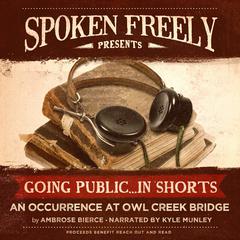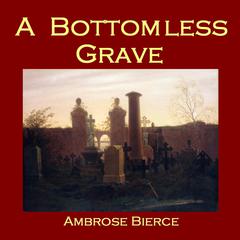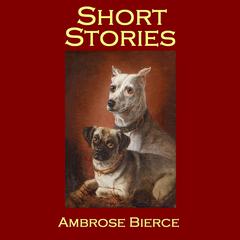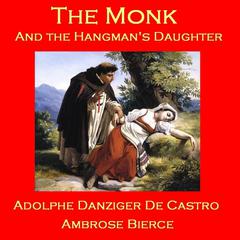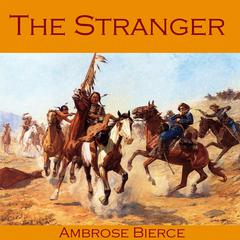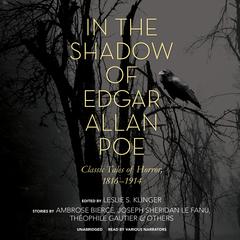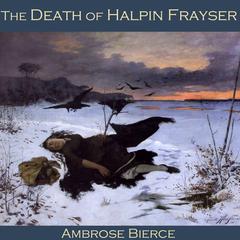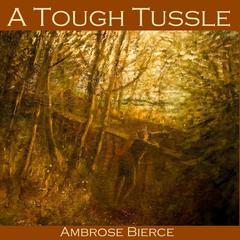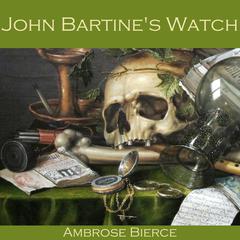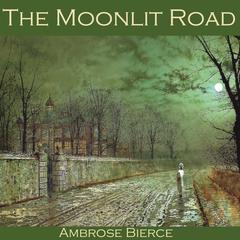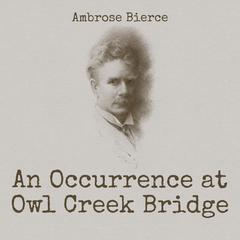 Play Audiobook Sample
Play Audiobook Sample
An Occurrence at Owl Creek Bridge and Other Stories Audiobook
 Play Audiobook Sample
Play Audiobook Sample
Quick Stats About this Audiobook
Total Audiobook Chapters:
Longest Chapter Length:
Shortest Chapter Length:
Average Chapter Length:
Audiobooks by this Author:
Publisher Description
Before he trailed off into the wilds of Mexico, never to be heard from again, Ambrose Bierce achieved a public persona as "bitter Bierce" and "the devil's lexicographer." He left behind a nasty reputation and more than ninety short stories that are perfect expressions of his sardonic genius. This volume of selected stories represent an unprecedented accomplishment in American literature. In their iconoclasm and needle-sharp irony, their formal and thematic ingenuity and element of surprise, they differ markedly from the fiction admired in Bierce's time.
''An Occurrence at Owl Creek Bridge,'' the premier title in this collection, is one of the most widely anthologized American short stories and is considered Bierce's best work. First published in 1891 in Bierce's short story collection Tales of Soldiers and Civilians, the story centers on Peyton Farquhar, a southern planter who is about to be hanged by the Union Army for attempting to destroy the railroad bridge at Owl Creek. As Farquhar stands on the bridge with a noose around his neck, Bierce leads the reader to believe that the rope breaks and that Farquhar falls into the water below, only to escape to his farm, where he is reunited with his wife. ''An Occurrence at Owl Creek Bridge" has been lauded as an example of technical brilliance and innovative narration as well as for its examination of such themes as the nature of time and the complexities of human cognition.
Download and start listening now!
"Owl Creek was interesting. Some of the terms were a little old, so you had to pay attention as not to get confused. Other than that, the story was pretty amazing. The Twilight Zone didn't do it justice! "
— TaylorA (4 out of 5 stars)
An Occurrence at Owl Creek Bridge and Other Stories Listener Reviews
-
" it explained how death was being honored it's a short story but still powerful "
— Samuel, 12/3/2013 -
" I really liked the Occurrence at Owl Creek Bridge. The other short stories that followed it weren't quite as good or as thought provoking. I even went online and found where I could watch the old movie short I'd read about in other reviews. It was exactly like the story and just as interesting. "
— KatieSuzanne, 7/23/2013 -
" I fouund this story pretty excited and interesting. I liked it because it showed me a new point of view(Omnicsent.) I enjoyed this story because it was very unpredictable. "
— Wilshem, 4/19/2013 -
" Interesting, strange short stories with unexpected twists and turns. "Behind the wall" was very sad. "
— Libby, 2/15/2013 -
" A strange tale that takes place during the Civil War. A man escapes death... or so he thinks. If you enjoy this tale, check out the Twilight Zone episode based on it. "
— Matt, 9/15/2012 -
" The Civil War stories (coming from a Civil War vet) were more interesting than his attempts at horror/weird fiction. Still Bierce's influence on others like Lovecraft are important. "
— T.S., 9/13/2011 -
" Owl Creek was interesting. Some of the terms were a little old, so you had to pay attention as not to get confused. Other than that, the story was pretty amazing. The Twilight Zone didn't do it justice! "
— TaylorA, 6/4/2011 -
" I fouund this story pretty excited and interesting. I liked it because it showed me a new point of view(Omnicsent.) I enjoyed this story because it was very unpredictable. "
— Wilshem, 12/16/2010 -
" A strange tale that takes place during the Civil War. A man escapes death... or so he thinks. If you enjoy this tale, check out the Twilight Zone episode based on it. "
— Matt, 12/16/2010 -
" Interesting, strange short stories with unexpected twists and turns. "Behind the wall" was very sad. "
— Libby, 4/27/2009 -
" it explained how death was being honored it's a short story but still powerful "
— Samuel, 2/8/2009 -
" I really liked the Occurrence at Owl Creek Bridge. The other short stories that followed it weren't quite as good or as thought provoking. I even went online and found where I could watch the old movie short I'd read about in other reviews. It was exactly like the story and just as interesting. "
— KatieSuzanne, 5/14/2008
About Ambrose Bierce
Ambrose Bierce (1842–ca. 1914) was an American journalist, short-story writer, and poet. Born in Ohio, he served in the Civil War and then settled in San Francisco. He wrote for Hearst’s Examiner, his wit and satire making him the literary dictator of the Pacific coast and strongly influencing many writers. He disappeared into war-torn Mexico in 1913.
About Jonathan Reese
Jonathan Reese was trained from an early age in music and theater. Of his many credits he was proudest of being a founding member of Berkeley’s Straw Hat review. Formidably intelligent, deeply sympathetic, and highly sensitive to his material, he was perfectly suited for literary narration.








